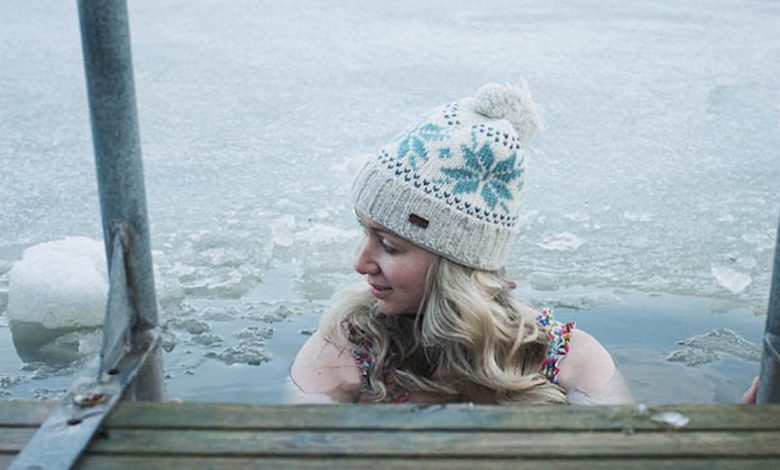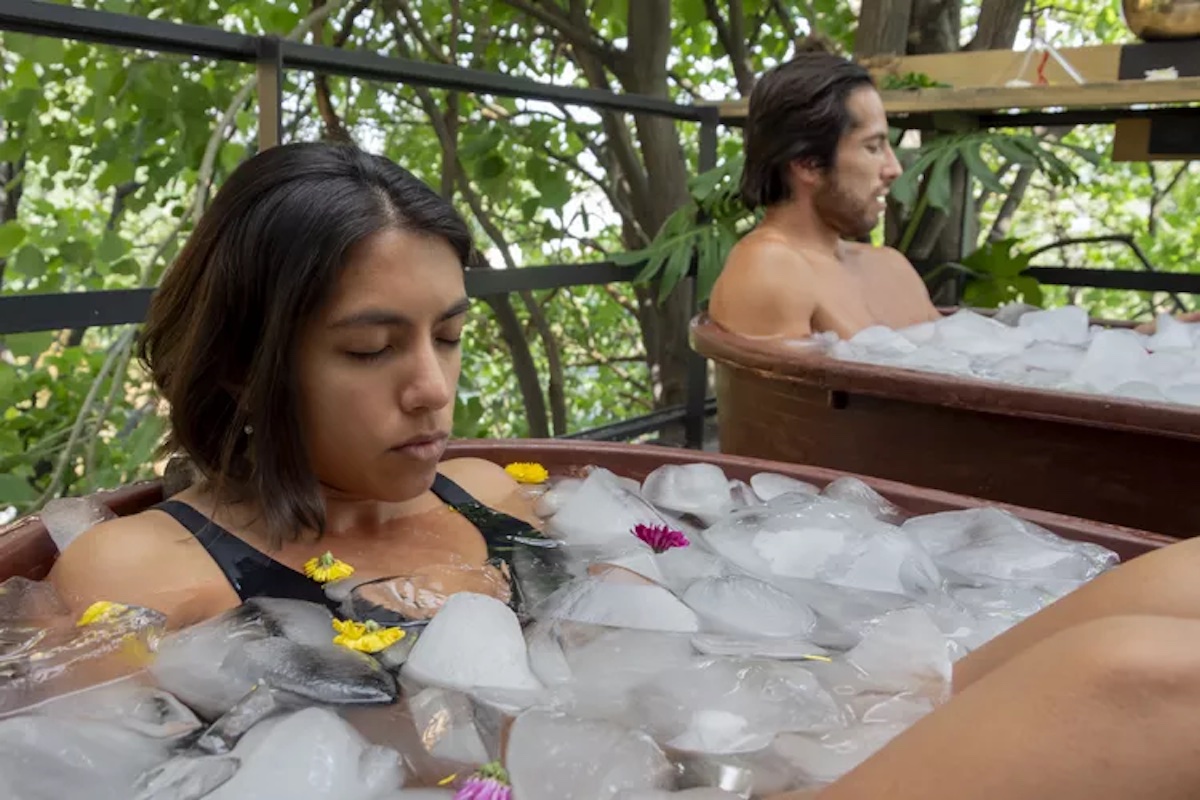Cold Water: Benefits of Drinking or Exposure

Cold Water: People are plunging into frigid lakes, easing into bathtubs filled with ice, and downing glasses of cold water. Some might do it for pleasure, and others for the health benefits.
Drinking cold water is refreshing and can help you maintain your core temperature when exercising. And it does burn a few more calories than drinking water at room temperature. There are other possible benefits to drinking cold water and full-body cold-water exposure, though large-scale controlled studies are lacking.
Benefits: Reasons to Drink Cold Water
Dehydration can make you hungry. Therefore drinking water, in general, does help you feel full and is a way to control your appetite for a short time.
Your body has to work to raise the temperature of ice water to body temperature. This process burns calories but not enough to make a significant difference. Drinking a cup of ice water burns about 8 calories more than drinking a cup of room-temperature water.
However, evidence suggests that drinking cold water during exercise can help you maintain core temperature longer.
You might prefer cold water because it is more satisfying than room-temperature water or because it’s generally more refreshing, especially on a hot summer day or when you’re exercising. For most people, there’s no downside to drinking ice-cold water.
The potential benefits of drinking ice water include:
Burns a few more calories than room-temperature water
Helps maintain core temperature longer during exercise
Is refreshing on a hot day or during physical activity
Keeps you hydrated if it encourages you to drink more
Risks of Drinking Cold Water
Cold Water, On the other hand, some people might be better off drinking water that’s just cool or room temperature.
People with achalasia (a motility disorder of the esophagus) may experience chest pain, regurgitation, and speech problems after drinking cold beverages. These symptoms tend to resolve with warm water.5 And for some people with migraine headaches, drinking cold water is a potential trigger.
It’s rare, but some people develop bradycardia (an abnormally slow heart rate) or syncope (fainting) after drinking cold liquids.
Benefits: Reasons to Try Cold-Water Exposure
Cold-water immersion, or taking an ice bath, is when you submerge everything but your head and neck in cold water. There appear to be potential benefits to this practice, though most are not scientifically backed.
One study showed that cold-water immersion can improve mood among young, fit, and healthy individuals. A study involving a small group of high-level athletes found that cold-water immersion helped muscle recovery when used for two weeks or more.
Cold-water bathing also may reduce inflammation, though it may decrease gains in strength and muscle growth over time.
Some research on cold-water immersion suggests it may help protect against cardiovascular disorders, obesity, and other metabolic diseases.12 However, many studies involve only small groups of people and often only one gender. Significant variations in the length of exposure, water temperature, and other factors among studies make it difficult to form firm conclusions.

Some reviews are promising, but more controlled studies are needed. These include the effect of cold-water immersion on the immune system, cardiovascular system, insulin sensitivity, and mental health.
The health benefits of cold showers and cold-water exposure may include:
Better recovery for high-level athletes
Improved mood
Reduced inflammation and swelling
A positive effect on the immune system, cardiovascular system, metabolism, and mental health
Risks of Cold-Water Exposure
There are some health risks, so it’s worth speaking with a healthcare provider before starting cold-water therapy. This is especially important if you have diabetes, heart disease, or Raynaud’s syndrome (a condition that causes numbness in fingers and toes due to cold). Other risks include hypothermia, pain, and nerve damage.
When trying cold-water immersion, use extreme caution and ease into it slowly. Always bring a buddy. There are significant risks, such as drowning, frostbite, cold shock, and others. Those with certain underlying medical issues such as heart and pulmonary disease should avoid cold therapy, but it’s a good rule of thumb (for all) to check in with your healthcare provider.
Cold vs. Hot Water: Is One Better?
Cold Water, Drinking hot beverages may relieve runny nose, cough, sneezing, sore throat, chilliness, and tiredness. There’s some evidence that warm water may aid digestion by improving intestinal movements and dispelling gas. However, studies on this are limited. Hot drinks may help reduce shivering and improve gross motor performance in cold weather.
Ideally, hot beverages should be served at about 130–160 degrees F. Beverages hotter than this can cause severe burns.
If you have achalasia, symptoms can flare up after drinking cold water but let up when you drink warm water.
Bathing or Therapy
Bathing in warm or hot water may help sore muscles feel better. Some studies suggest that immersing yourself in hot water can help relieve stress and ease symptoms of depression. And a warm bath or hot sauna can help lower blood pressure.
Hot baths are safe for most people. Among those who should avoid them are people with angina (unstable chest pain), poorly controlled high blood pressure, and serious heart problems. People older than age 70 and those with low blood pressure (hypotension) should also avoid them.23 To be on the safe side, talk to a healthcare provider first.
Cold Water Temperature: What’s Ideal?
Regarding heat stress and dehydration, several studies suggest 60.8 degrees F (about the temperature of cool tap water) as the optimal temperature for rehydration.
The temperature should be between 50 and 59 degrees F for cold-water immersion.
Summary
Drinking icy cold water may help you stay hydrated and burn a few extra calories. It’s also helpful in keeping your core body temperature down while exercising. Most people can drink ice water with no ill effects.
Icy baths or showers may also have a few health benefits, but research is limited. Bathing or showering in cold water might improve mood and reduce inflammation. But there are some risks, such as frostbite and nerve damage. People with serious health conditions, like heart disease or diabetes, should speak with a healthcare provider before starting cold therapy.
Also Read:
The Best Skin Care Routine For 40s
Oxygen Facial Benefits: The 9 Amazing Benefits Of Oxygen Facial For Glowing Skin
Glowing Skin Routine: The 7 Days Glowing Skin Challenge
11 high-fibre foods to relieve constipation and promote digestive health




